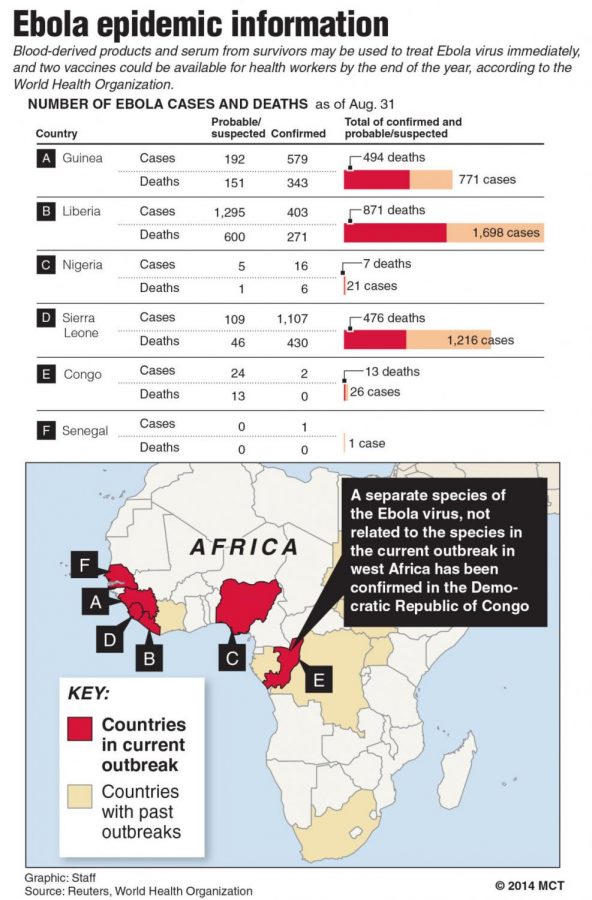Ebola epidemic necessitates greater US humanitarian aid
The Ebola virus is spreading rapidly in West Africa, and the American media is now frequently covering it as more American aid workers become infected with the disease.
So far, Ebola has affected three Americans: Nancy Writebol, Kent Brantley and Richard Sacra. They all worked in Liberian hospitals until infected, though not all worked with Ebola victims.
These American nurses and doctors then became patients themselves. They flew back to the U.S. to receive treatment in Atlanta, Ga.
Beyond Americans’ contraction of the illness, Ebola has infected 3,500, taking the lives of over 1,900 people in West Africa, according to BBC News.
While the United States has the adequate sanitation and treatment technology for the virus, West Africa lacks the equipment to even protect those treating the victims of Ebola.
Many Liberian nurses have begun a strike, refusing to treat patients without adequate equipment to diagnose and treat those assumed to have Ebola.
The U.S. has responded to the outbreak, but could do more in the way of equipment to treat victims of Ebola.
According to a press release from the Centers for Disease Control, “100 U.S. government personnel have been deployed and are working in the affected countries.”
Since March, the U.S. Agency for International Development (USAID) has aided West Africa by giving nearly $21 million to help combat the disease. Along with UNICEF, USAID has also flown in over 400,000 pairs of medical gloves and 40 tons of chlorine.
The World Health Organization is asking for an accumulative $490 million from the U.S. and other nations able to commit money.
Despite aid from the U.S., nurses in Liberia, victims of Ebola, and aid workers alike all agree that more help is needed.
World leaders have endured criticisms by organizations like Medecins Sans Frontieres (Doctors without Borders), who have labeled the response of world leaders to the disease as “lethally inadequate”.
Although $21 million is a lot of money, the U.S. has more to offer.
When battling an epidemic like Ebola that has killed almost 2,000 people, wealthy nations like America have a moral obligation to generously and selflessly give.







